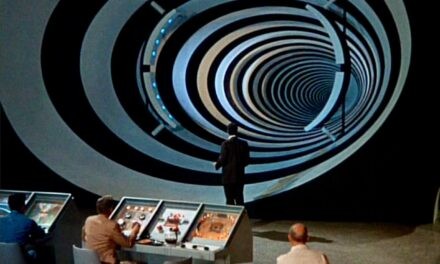
It’s been over a month since the monumental shock that was Brexit as well as its immediate and messy aftermath of public confusion, political backtracking and the general media frenzy that could hardly keep up with the initial developments and shifting agendas. No longer living in the UK, I nonetheless felt involved and invested in the outcome enough that I spent most of the last few days of a holiday- the days of Brexit- watching Irish news and seeking out a sufficient internet connection in an attempt to make sense of what was unfolding. As with many of those in the Remain camp, it was incredibly difficult to understand how events had come to pass and to adjust to this Twilight Zone of a new reality.
It seemed absurd, an epic joke or glitch in the system that was resulting in the unravelling of British identity and economy. As a joke, it wasn’t the funny ‘ha, ha’ but funny utterly strange. Clearly, a lot of anger followed from both the Remain and Leave camps and the succession of political U-turns and resignations provided visual plot points that framed the first few weeks of the Brexit drama. Nigel Farage’s ‘mistake’ comment on Good Morning Britain (in relation to the £350m suggested to be reclaimed from the EU and for the NHS) became a viral video evidencing of the supposed lies promulgated by the Leave campaign. David Cameron’s announcement of his intention to step down as Prime Minister became further proof for Remainers that Britain was in turmoil and, again, Farage’s performance at the European Parliament stoked Remainers’ anger further. While endless amount of news coverage attempted to produce a more informed and detailed account of the richer narrative of Brexit, short video virals- often taken from television- worked to provide an easy entry route into the story. The aforementioned clips fuelled the fury and disappointment of the public, with social media services dominated by the recirculation of them during the last week of June. Just as quickly, however, was the circulation of satirical videos- much lighter in tone- that provided an entertaining, if still quite sombre, accompaniment to the former videos.
It is these videos that I want to reflect upon. Usually ranging from a few seconds to a few minutes in duration, these videos are not simply information pieces intended to bring insight and understanding to a wider audience. Instead, they often function to illustrate and convey opinion and feeling. They are a judgement upon the particular subject of the video. As video memes, they are often understood to represent the political assertiveness of the community in which they circulate (Jenkins, Ford and Green, 2013). They enable the wider population to stake a claim in the circulation of media, and to interject, if not undermine, the dominant and intended meaning of the original representation, often by inferring a secondary meaning through the use of popular media texts. Let’s take the example of Cameron’s call to the public to vote remain. In the immediate aftermath of the Brexit vote, this was remixed with the introductory title sequence of It’s Always Sunny in Philadelphia. As Cameron declares that he believes us to be stronger in the EU, the familiar It’s Always Sunny title music accompanies the ‘episode’s’ title ‘Britain Leaves the EU.’ Anyone familiar with the series understands the reference. The title sequence usually has the show’s gang plan some escapade that will inevitably lead to disaster. The implication here is that Brexit is equally such and that the unfolding of Brexit will be a comical descent into carnage.
The video memes that followed Brexit ranged from direct ‘quoting’ of television news (such as the already satirical The Daily Show) to yet more remixes of the film Downfall or re-imaginings of TV shows such as Seinfeld. While much has been said about the democratising potential of such political memes, there was also a sense of acquiescence to the new political scene in them, as though enough time had passed to necessitate a good joke.
The satirical video memes that followed Brexit were not so much intended to rally the population into political activism as to help soften the Brexit blow. They seemed to represent a coming to terms with the decision. For sure, many of the videos made fun of the supposedly ‘stupid’ decision (if we follow the overwhelming political leanings of the videos). They were comical reinterpretations of events as bumbled and regretful. And while the satirical videos undoubtedly displayed political engagement on the part of those circulating and sharing them, they also evidenced a form of political inertia, acting as antidotes to the seriousness and even the reality of the situation (such as represented in mainstream media).
This is demonstrated in the multiple video memes that framed Brexit through pre-existing clips of TV shows and films. In mixing the events of Brexit with, for example, Downfall and It’s Always Sunny, they produced a distancing effect that shifted the discourse from news and factual to entertainment. These memes were available relatively quickly, some posted on the same day as the referendum, as was the case with the It’s Always Sunny meme. The first to really capture my attention was the Seinfeld Brexit meme, a take upon an episode in which George quits his job only to regret it immediately. The dialogue exchange between George and Jerry is thoroughly reflective of the national mood on those days, in which the profound implications of non-membership were hitting home for many. The clip is absent of the original context of George quitting his job. Instead, it begins with his reference to ‘making a mistake.’ It follows with some advice from Jerry to simply return as if nothing had happened. To emphasise the resemblance to Brexit, the clip’s producer has included a British and US flag for reference.
The clip is suggestive of a number of things: that the vote was determined by a rash emotional decision rather than thought through; that as ‘George’ the British were emotionally volatile; that the dominant feeling was one of regret; and that there remained the possibility for reneging on the decision. Most of this is obvious. However, it betrayed the on-going national division regarding Britain’s relationship to the EU and presented Britain as united in its desire to overturn the decision to leave the EU. For those of us following the events of those days, this was of course, not the consensus. While some would have us think that national sentiment favoured the status quo, the reported rise in anti-immigrant hostilities suggested something else. Equally, while the clip provided comic relief during a national crisis, it undermined the continued efforts to identify an appropriate exit strategy. The chaos that was unfolding and affecting the livelihoods of many was reduced to a ‘roll-eyes’ moment.
It was, perhaps, no surprise that these clips were often framed through an international lens. Most of the clips I sourced through British friends social media accounts, but many represented Britain from the point of view of outsiders or as a national ‘other.’ For those British reluctant to leave the EU, this allowed them to displace responsibility from the collective national body and onto a caricature of Britain not representative of themselves. The Laughing Man on Brexit clip, taken from a Spanish language talk show (and used for any number of political memes) recounted the unfolding of events and the implication of the Leave vote from the perspective of the looker-on. Here, it appeared that Europeans- or the wider international community- laughed at the naivety of the British. However, it also allowed those Remainers to do the same, thus absolving them of any role in the situation.
Equally, the often-memed Downfall once again surfaced as a comical reinterpretation of Hitler’s final days, this time played out as Boris Johnson’s panic upon the announcement of the Leave vote. Like the aforementioned clips, this alluded to the stupidity of the Leave voters as well as the failed political game played by Johnson. The implication, once again, was that there were those reasonable people that were knowledgeable enough to understand the significance of the vote (an easy assertion, after the fact) and those who led the nation blindly towards catastrophe.
While bordering upon satire, these clips seemed more firmly embedded in the tradition of mockery and irony, engendering a mood of cynicism and elitism rather than genuine political engagement and critical reflection. They confirmed to the viewer what they already ‘knew’: that their position was correct, that there was no need to consider alternative views or perspectives-even when those are of the majority- and there was no point in participating in the new political reality- that was someone else’s fault and problem.
The circulation of Brexit video memes undoubtedly diffused some of the anger felt by those Remainers and managed some of the tensions between different parties in the Brexit debate. The videos also provided a means of injecting opinion and feeling into a news debate often governed by a few dominant and powerful voices. Yet, in watching the content and tone of the videos a few things emerge. Brexit was very quickly correlated with fictional drama, as though it were something fantastical and unreal and possibly detracting from continued investment in the outcome of the vote. In framing the Brexiters as outsiders or from the perspective of the outsider, responsibility was laid at the door of another rather than accepted as a democratic decision shared by all. And, finally, in ridiculing the Brexiters, the videos perpetuated the ideological divide that was productive of the Leave decision instead of making any effort to learn from events. Ultimately, these videos seemed to tell the ‘everyone’ they speak to what they already (thought they) knew. One could question, therefore, if they contributed to any political engagement and served any purpose in dealing with the fallout of the Brexit vote.
Biographical Note:
Sarah Arnold has worked as lecturer in Film & Television and currently works for Axonista, a company that develops interactive video applications and services for broadcasters and online video providers. She is currently working on the book Television, Technology and Gender: New Platforms and New Audiences for I.B. Tauris. Her previous books include Maternal Horror Film: Melodrama and Motherhood (Palgrave) and the co-authored book The Film Handbook (Routledge). Her research focuses on viewing spaces and environments of, and within, television and film.




